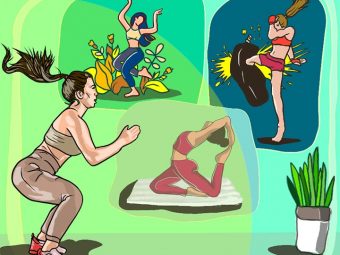Psychologists Say That If You Apply This 2-Hour Rule, Your Life Will Change 180°

Image: iStock
What’s been drilled into us since early childhood is the importance of extreme concentration. We just have to focus on any task at hand with unwavering mental strength and success is ours! However, when you look at geniuses of yesteryear, they were often dreamers. People like Albert Einstein used to often take walks, following in the footsteps (no pun intended) of Darwin (1). Einstein asserted this allowed him to let his thoughts wander.
John Cleese, in his short lecture on creativity, claimed that we operate in two modes – the open and closed. The open mode, he said, is more relaxed and exploratory. The closed mode is more tunnel-visioned and rigid.
The open mode is supposed to represent our creative peak – when we get most of our ideas. The closed mode is where we execute our ideas with little room for dillydallying. Cleese extols the importance of being in the open mode from time to time as we are usually focussed on getting things done and do not ideate.
Zat Rana, in his article for the Business Insider, developed a 2-hour rule wherein you took two hours out of every week (roughly between a quarter of an hour and 20 minutes every day) to let your mind wander freely (2). The objective was to think about all the important things that tend to slip your mind, such as where your career is going, what to do with your life, opportunities to take, and so forth. This might seem like significant parts of our lives that we should be thinking about anyway, but when you’re caught up doing the essentials of your day job, it’s usually hard to find the time.
Einstein first had the idea for special relativity while conducting what is called a thought experiment. He considered what would happen if he were to ride on a light wave at a certain speed. He concluded that the wave would appear frozen to him. This simple experiment, created while just pondering without a cause, led to the development of one of the most important ideas of modern physics! But the most famous thought experiment is arguably Schrödinger’s cat – another landmark in modern physics. Nevertheless, these German scientists of the early 20th century were not the first to conceive of the idea of a ‘thought experiment’ – it has been around from even before the time of the Socratics (3). It is only recently that the idea of just allowing your mind to be free has been proven to be beneficial by scientific studies.
Further studies by Dr. Fiona Kerr, from the University of Adelaide, have supported the claim that letting your thoughts wander, or to daydream, is conducive towards to boosting productivity (4). Allowing your mind to roam freely from time to time could allow you to pay attention to work at hand, free of the noise that usually accompanies our thoughts. Associations between different subjects are common in this state, similar to when we sleep. It allows us to put together pieces of a puzzle that would otherwise failingly be approached in a linear fashion.
Additionally, the same study confirms that sleep is indeed an important factor when it comes to execution and thinking. An afternoon nap can often increase alertness and refresh the brain. This is why companies like Google provide nap pods at work and encourage you to rest if needed (5). Talk to your boss about getting some time for a little shut-eye.
Now that you’re all sold about the 2-hour rule (we hope), how should one go about it? Well, one really good suggestion for what you can do with your daily pondering time is to write down a list of ten ideas. James Altucher, a renowned TED speaker, calls this “flexing your idea machine.” He claims that your “idea muscle” is like any other, and it atrophies if you don’t flex it (6). Hence, write down a list of ten things every day – it doesn’t have to be things you have to implement. It could be a list of ten people you want to meet, ten career goals, ten places to visit, ten ideas to improve Facebook, or so on. After a year, you have a list of 3650 ideas in your arsenal that you can bust out at any time.
Even if you aren’t going to follow through with most of them, even if most of the ideas are sub-par, you’re constantly thinking about new things and expanding your mind, which is the whole point of daydreaming! You can also take walks, listen to instrumental music that doesn’t interfere with your thought process, or just sit around staring into space. The essential idea is to just think.
20 minutes of the day isn’t really a lot of time – you shouldn’t be concerned you’re losing out on other things. Start with this rule today and you’ll see an incremental betterment in your life as the days come!


























